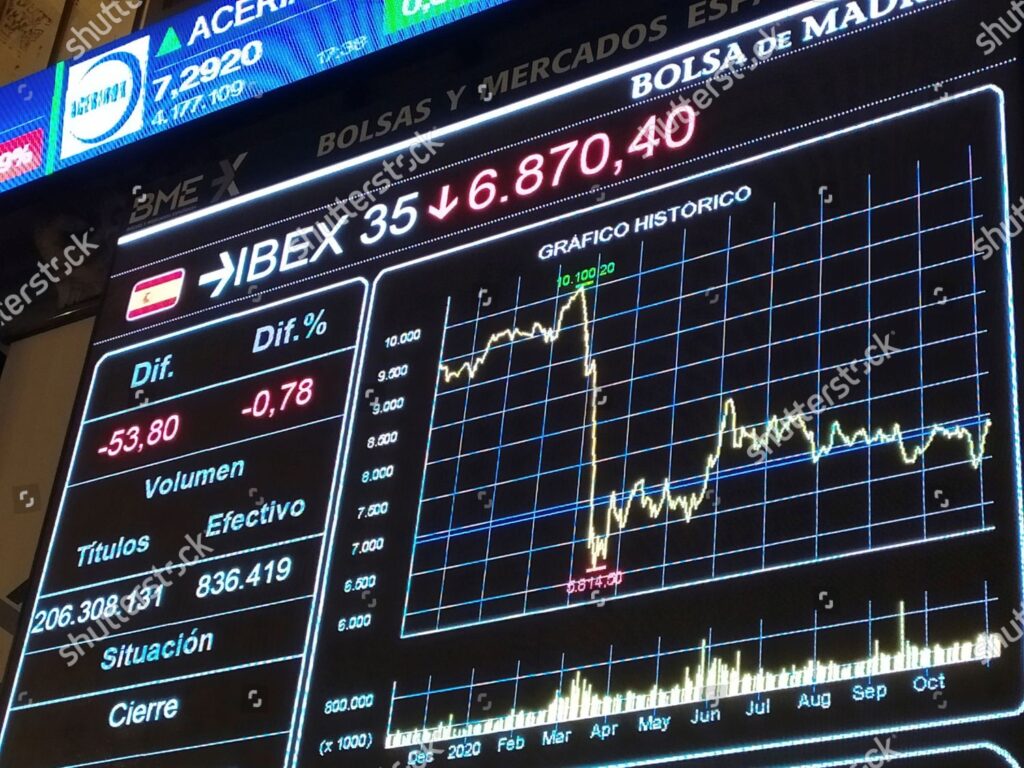Introduction to the Turkish stock market
The Turkish stock market has emerged as a lucrative investment destination for global investors seeking diversification and potential growth opportunities. Turkey’s strategic location, straddling Europe and Asia, and its vibrant economy have contributed to the development of a robust financial market. As an Indian investor, exploring the Turkish stock market can open up new avenues for portfolio diversification and potential returns.
Turkey’s stock market is represented by the Borsa Istanbul (BIST), which is the sole exchange entity in the country. BIST operates various equity markets, including the BIST 100 Index, which comprises the top 100 companies by market capitalization. The Turkish stock market has witnessed significant growth in recent years, attracting both domestic and international investors.
Investing in the Turkish stock market offers several advantages, such as exposure to a dynamic and rapidly growing economy, access to a diverse range of industries, and the potential for attractive returns. However, it is crucial to understand the market dynamics, regulatory framework, and investment procedures before venturing into this market.
Stock Market in Turkey + Europe
The Turkish stock market is closely linked to the European financial markets due to Turkey’s geographical proximity and economic ties with the European Union (EU). Turkey has been a candidate for EU membership since 1999, and its accession process has influenced its economic and regulatory policies, aligning them with European standards.
The integration of the Turkish stock market with European markets has facilitated cross-border investments and attracted foreign capital. Many Turkish companies have listings on both the BIST and European exchanges, providing investors with opportunities to diversify their portfolios across multiple markets.
Furthermore, the Turkish stock market is influenced by economic developments and policies within the EU, as well as global market trends. Investors should closely monitor macroeconomic indicators, geopolitical events, and regulatory changes in both Turkey and Europe to make informed investment decisions.
Top 3 list of major stocks in Turkey
- Turkiye Garanti Bankasi A.S. (GARAN): Garanti BBVA is one of the largest private banks in Turkey, offering a wide range of financial services. It has a strong presence in the retail, corporate, and investment banking sectors.
- Turkcell Iletisim Hizmetleri A.S. (TCELL): Turkcell is the leading mobile operator in Turkey, with a significant market share in the telecommunications industry. The company has expanded its operations to other countries and is known for its innovative products and services.
- Turkiye Petrol Rafinerileri A.S. (TUPRS): Tüpraş is the largest industrial company in Turkey and operates in the refining and petrochemical sectors. It plays a crucial role in meeting the country’s energy demands and has a strong export presence.
These companies represent diverse sectors, including banking, telecommunications, and energy, providing investors with exposure to key industries driving the Turkish economy.
Why consider investing in the Turkish stock market?
There are several compelling reasons to consider investing in the Turkish stock market:
- Economic Growth Potential: Turkey has a rapidly growing economy with a young and dynamic population, presenting opportunities for long-term growth across various sectors.
- Diversification: Investing in the Turkish stock market can help diversify your portfolio and reduce overall risk by adding exposure to a different market with unique economic drivers.
- Attractive Valuations: Turkish stocks may offer attractive valuations compared to other developed markets, providing potential for capital appreciation.
- Exposure to Emerging Markets: Turkey is considered an emerging market, offering investors the opportunity to participate in the growth potential of developing economies.
- Access to Diverse Industries: The Turkish stock market provides exposure to a wide range of industries, including banking, telecommunications, energy, manufacturing, and consumer goods.
Understanding the basics of investing in the stock market
Before investing in the Turkish stock market, it is crucial to understand the basics of investing in stocks. Here are some key concepts:
- Stock Market Fundamentals: Familiarize yourself with terms such as market capitalization, price-to-earnings (P/E) ratio, dividend yield, and other financial metrics used to evaluate stocks.
- Investment Strategies: Determine your investment goals, risk tolerance, and time horizon. Consider strategies like value investing, growth investing, or a combination of both.
- Portfolio Diversification: Diversify your portfolio across different sectors, industries, and asset classes to mitigate risk and potentially enhance returns.
- Research and Analysis: Conduct thorough research on companies, industries, and market trends to make informed investment decisions. Utilize financial reports, analyst recommendations, and other resources.
- Risk Management: Understand and manage the risks associated with investing, such as market volatility, currency fluctuations, and geopolitical events.
By understanding these fundamental concepts, you will be better equipped to navigate the Turkish stock market and make informed investment decisions.
Top list of stock index in Turkey
The Turkish stock market is primarily represented by the following major stock indices:
- BIST 100 Index: This is the flagship index of the Borsa Istanbul and comprises the top 100 companies by market capitalization. It is widely followed by investors and serves as a benchmark for the overall performance of the Turkish stock market.
- BIST 30 Index: The BIST 30 Index consists of the 30 largest and most liquid stocks traded on the Borsa Istanbul, representing the blue-chip companies in Turkey.
- BIST Industrials Index: This index tracks the performance of companies operating in the industrial sector, including manufacturing, construction, and related industries.
- BIST Services Index: The BIST Services Index represents companies in the services sector, such as telecommunications, transportation, and utilities.
- BIST Banking Index: As the name suggests, this index comprises major banks and financial institutions listed on the Borsa Istanbul, providing insights into the performance of the Turkish banking sector.
These indices serve as benchmarks for various sectors and segments of the Turkish stock market, allowing investors to track and compare the performance of their investments against relevant benchmarks.
How to invest in the Turkish stock market from India
As an Indian investor, you can invest in the Turkish stock market through the following channels:
- International Brokers: Open an account with an international brokerage firm that offers access to the Turkish stock market. These brokers typically provide online trading platforms and research tools to facilitate investing in foreign markets.
- Global Mutual Funds or Exchange-Traded Funds (ETFs): Invest in mutual funds or ETFs that have exposure to Turkish stocks or the broader Turkish market. These funds can be purchased through Indian brokers or investment platforms.
- Direct Investment: Explore the possibility of opening a brokerage account directly with a Turkish brokerage firm. However, this option may involve additional documentation and regulatory requirements.
- Participatory Notes (P-Notes): P-Notes are derivative instruments issued by foreign institutional investors or brokers, providing Indian investors with exposure to the Turkish stock market without direct ownership of the underlying securities.
It is essential to research and comply with the applicable regulations, taxation, and documentation requirements for investing in foreign markets from India. Consulting with a financial advisor or an investment professional can help navigate the process and make informed decisions.
How to invest in the Turkish stock market from the USA
For investors based in the United States, there are several options to invest in the Turkish stock market:
- Online Brokers: Many US-based online brokers, such as Interactive Brokers, TD Ameritrade, and Charles Schwab, offer access to international markets, including the Turkish stock market. Open an account with a broker that provides this service and trade Turkish stocks directly.
- American Depositary Receipts (ADRs): ADRs are securities that represent ownership in a foreign company’s shares and are traded on US stock exchanges. Several Turkish companies have ADRs listed on major US exchanges, allowing investors to buy and sell these securities like regular stocks.
- Exchange-Traded Funds (ETFs): Invest in ETFs that track the performance of the Turkish stock market or specific sectors within the market. These ETFs are listed on US exchanges and can be easily traded through a brokerage account.
- Mutual Funds: Some mutual funds, especially those focused on emerging markets or global equities, may have exposure to Turkish stocks. Research and invest in these funds through your brokerage account or directly with the fund company.
- Direct Investment: It is also possible to open a brokerage account directly with a Turkish brokerage firm, although this option may involve additional documentation and regulatory requirements.
It is crucial to consider factors such as transaction costs, currency exchange rates, and taxation when investing in foreign markets from the United States. Consulting with a financial advisor or conducting thorough research can help navigate the process effectively.
Factors to consider before investing in the Turkish stock market
Before investing in the Turkish stock market, it is essential to consider the following factors:
- Economic and Political Stability: Evaluate the current economic and political climate in Turkey, as these factors can significantly impact the stock market’s performance. Monitor macroeconomic indicators, government policies, and geopolitical developments.
- Currency Fluctuations: The Turkish Lira’s exchange rate against major currencies like the US Dollar or Euro can impact the returns on your investments. Keep an eye on currency movements and consider hedging strategies if necessary.
- Regulatory Environment: Familiarize yourself with the regulatory framework governing the Turkish stock market, including rules for foreign investment, taxation, and investor protection measures.
- Industry and Sector Analysis: Conduct thorough research on the industries and sectors you plan to invest in, considering factors such as growth potential, competitive landscape, and regulatory changes.
- Company Fundamentals: Analyze the financial performance, management, and growth prospects of individual companies before investing. Review financial statements, analyst reports, and other relevant information.
- Liquidity and Trading Volume: Ensure that the stocks you plan to invest in have sufficient liquidity and trading volume to facilitate efficient entry and exit from positions.
- Diversification: Consider diversifying your investments across different sectors, industries, and asset classes to mitigate risk and enhance overall portfolio performance.
By carefully considering these factors, you can make informed investment decisions and manage the risks associated with investing in the Turkish stock market.
Key sectors and industries in the Turkish stock market
The Turkish stock market offers exposure to a diverse range of sectors and industries, reflecting the country’s dynamic economy. Here are some of the key sectors and industries:
- Financial Services: The banking and financial services sector is a significant component of the Turkish stock market, with major banks and financial institutions listed on the Borsa Istanbul.
- Telecommunications: Turkey has a vibrant telecommunications industry, with several major players operating in the mobile, internet, and fixed-line segments.
- Energy and Utilities: The energy sector, including oil and gas, as well as utilities such as electricity and water, plays a crucial role in the Turkish economy and is well represented on the stock market.
- Consumer Goods and Retail: With a growing middle class and increasing consumer spending, the consumer goods and retail sectors offer investment opportunities in areas like food and beverage, apparel, and household products.
- Manufacturing and Industrials: Turkey has a strong manufacturing base, with companies operating in sectors such as automotive, textiles, construction materials, and machinery.
- Technology and Innovation: Although still emerging, the technology and innovation sectors are gaining traction in Turkey, with companies focusing on areas like software, e-commerce, and digital services.
- Real Estate and Construction: The real estate and construction industries have been significant drivers of economic growth in Turkey, with opportunities for investment in residential, commercial, and infrastructure projects.
- Tourism and Hospitality: Turkey’s rich cultural heritage and geographical attractions make the tourism and hospitality sectors attractive investment options, with companies operating hotels, resorts, and related services.
By understanding the key sectors and industries in the Turkish stock market, investors can make informed decisions and diversify their portfolios based on their investment objectives and risk tolerance.
Resources and tools for researching Turkish stocks
To make informed investment decisions in the Turkish stock market, it is crucial to conduct thorough research and analysis. Here are some valuable resources and tools to assist you in your research:
- Borsa Istanbul Website: The official website of the Borsa Istanbul provides extensive information on listed companies, market data, indices, and regulatory updates.
- Company Websites and Financial Reports: Visit the websites of individual companies you are interested in and review their annual reports, financial statements, and investor presentations to gain insights into their performance and strategies.
- Financial News Portals: Online financial news portals like Bloomberg, Reuters, and local Turkish news sources can provide up-to-date information on market trends, company news, and economic developments in Turkey.
- Investment Research Reports: Subscribe to or access research reports from reputable investment banks, brokerage firms, and independent research providers for in-depth analysis and recommendations on Turkish stocks.
- Online Screening Tools: Utilize online stock screening tools and platforms to filter and analyze Turkish stocks based on various criteria, such as market capitalization, sector, financial ratios, and performance metrics.
- Social Media and Investment Forums: Engage with other investors and market participants on social media platforms and investment forums to gain insights, share experiences, and stay updated on the latest developments in the Turkish stock market.
- Economic and Industry Reports: Consult reports and publications from organizations like the World Bank, International Monetary Fund (IMF), and industry associations to understand the broader economic and industry trends impacting the Turkish market.
- Investor Relations Contacts: Reach out to the investor relations teams of companies you are interested in for additional information, clarifications, and updates.
By leveraging these resources and tools, you can conduct comprehensive research, stay informed about market developments, and make well-informed investment decisions in the Turkish stock market.
Risks and challenges of investing in the Turkish stock market
While investing in the Turkish stock market presents potential opportunities, it is essential to be aware of the associated risks and challenges:
- Political and Economic Instability: Turkey has experienced periods of political and economic instability in the past, which can lead to market volatility and uncertainty. Investors should closely monitor these factors and their potential impact on investments.
- Currency Fluctuations: The Turkish Lira has experienced significant fluctuations against major currencies, which can affect the returns on investments denominated in foreign currencies.
- Geopolitical Risks: Turkey’s geographical location and regional dynamics can expose the country to geopolitical risks, such as conflicts, sanctions, or diplomatic tensions, which can impact the stock market and investor sentiment.
- Regulatory Changes: Changes in regulations governing foreign investment, taxation, or corporate governance can pose challenges for investors and may require adjustments to investment strategies.
- Liquidity Risks: Some Turkish stocks may have relatively low trading volumes, which can make it difficult to enter or exit positions at desired prices, leading to potential liquidity risks.
- Information Asymmetry: Access to reliable and timely information about companies and market developments may be limited, creating an information asymmetry between domestic and foreign investors.
- Corporate Governance Concerns: Investors should be aware of potential corporate governance issues, such as transparency, accountability, and minority shareholder rights, which can impact the performance and valuation of companies.
- Emerging Market Risks: As an emerging market, Turkey may be subject to risks associated with developing economies, such as higher volatility, limited infrastructure, and potential market inefficiencies.
To mitigate these risks, it is crucial to conduct thorough research, diversify your portfolio, and closely monitor market developments. Additionally, seeking professional advice from financial advisors or investment experts can help navigate the complexities of investing in the Turkish stock market.
Tips for successful investing in the Turkish stock market
To increase your chances of success when investing in the Turkish stock market, consider the following tips:
- Diversification: Diversify your portfolio across different sectors, industries, and asset classes to mitigate risk and reduce the impact of market fluctuations on your overall investments.
- Long-term Perspective: Adopt a long-term investment horizon and avoid being swayed by short-term market volatility. The Turkish stock market, like any other market, may experience periods of ups and downs, but a long-term perspective can help weather these fluctuations.
- Fundamental Analysis: Conduct thorough fundamental analysis of companies, evaluating their financial performance, competitive position, management quality, and growth prospects before investing.
- Stay Informed: Stay up-to-date with economic, political, and regulatory developments in Turkey and their potential impact on the stock market. Monitor news sources, company announcements, and analyst reports.
- Risk Management: Implement risk management strategies, such as stop-loss orders, portfolio rebalancing, and diversification, to protect your investments and mitigate potential losses.
- Seek Professional Advice: Consider seeking guidance from financial advisors or investment professionals with expertise in the Turkish stock market. They can provide valuable insights and help navigate the complexities of investing in a foreign market.
- Patience and Discipline: Investing in the stock market requires patience and discipline. Avoid making impulsive decisions based on emotions or market noise, and stick to your well-researched investment strategy.
- Understand Cultural and Language Differences: Be aware of cultural and language differences when investing in a foreign market like Turkey. Seek assistance from local experts or resources if needed to bridge any gaps in understanding.
By following these tips and adopting a disciplined and informed approach, you can increase your chances of success when investing in the Turkish stock market.
final thoughts
Investing in the Turkish stock market presents an exciting opportunity for Indian investors to diversify their portfolios and potentially capitalize on the growth prospects of a dynamic and rapidly developing economy. However, it is crucial to approach this endeavor with a well-informed and strategic mindset.
By conducting thorough research, understanding the market dynamics, and seeking professional guidance when necessary, you can navigate the complexities of investing in a foreign market like Turkey. Embrace diversification, adopt a long-term perspective, and remain vigilant about economic, political, and regulatory developments that may impact your investments.
While the Turkish stock market offers potential rewards, it is essential to carefully assess and manage the associated risks, such as currency fluctuations, geopolitical tensions, and corporate governance concerns. Implement risk management strategies and maintain a disciplined approach to investing.
Ultimately, investing in the Turkish stock market can be a rewarding endeavor for Indian investors seeking exposure to a vibrant and growing market. By staying informed, exercising patience, and making well-informed decisions, you can potentially unlock new opportunities for portfolio growth and diversification.
To begin your journey of investing in the Turkish stock market, consider opening an account with a reputable international brokerage firm or exploring mutual funds and ETFs that offer exposure to Turkish equities. Alternatively, consult with a financial advisor who specializes in international investments to develop a tailored investment strategy aligned with your goals and risk tolerance.
















































